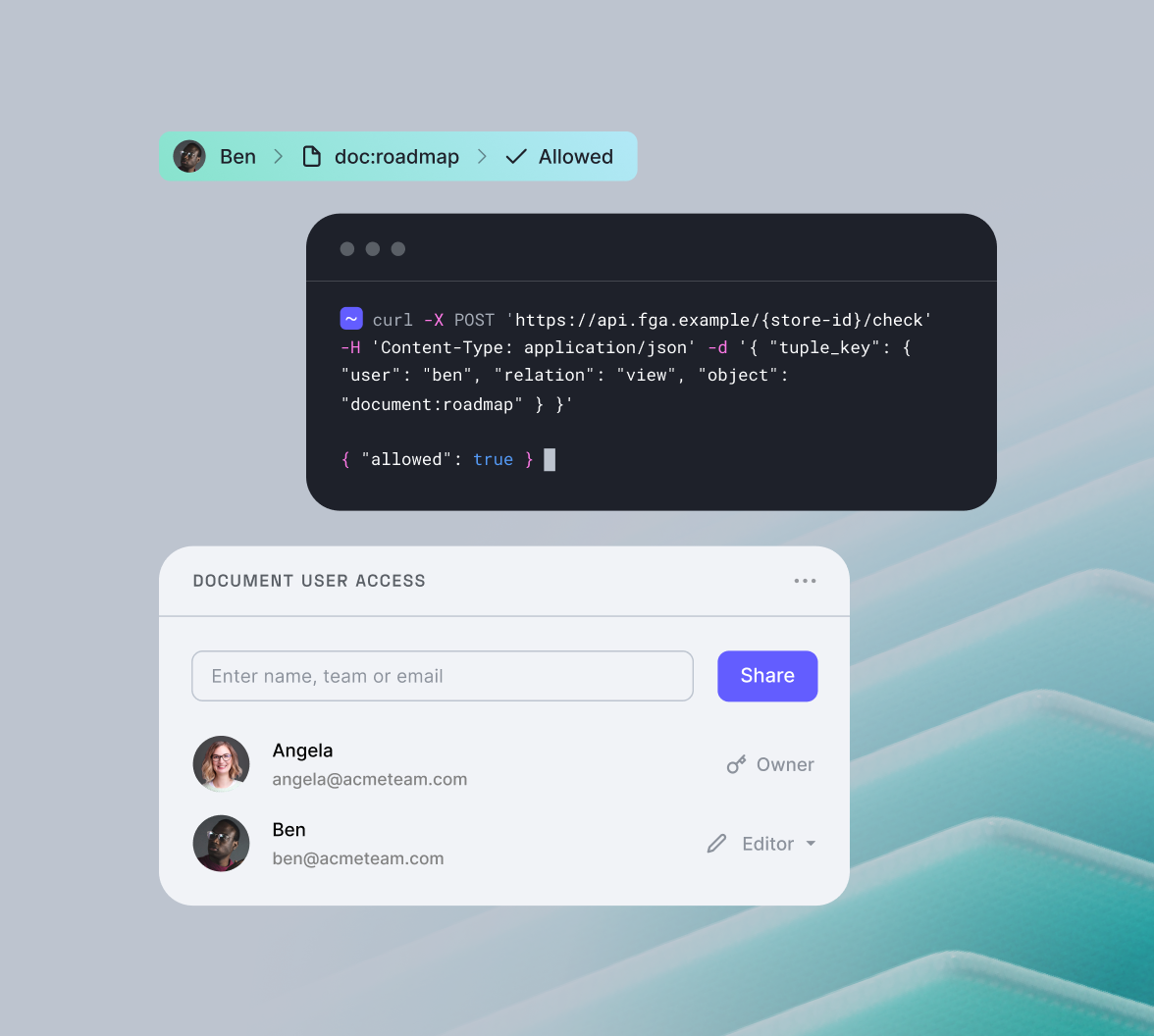We’ve been talking to hundreds of developers who consistently tell us that they want to change how authorization is implemented in their applications. Authorization logic is embedded in the code and implemented differently in each service. It’s not flexible enough to define complex policies or finer-grained authorization. They struggle with load at scale. The existing RBAC/ABAC solutions can’t handle this complexity. That’s why we built OpenFGA.
We are thrilled to announce the release of OpenFGA v1.0, a modern, flexible authorization system inspired by Google's Zanzibar. OpenFGA, designed for reliability and low latency at scale, has been embraced by the developer community since its open-sourcing in June 2022. As a Cloud Native Computing Foundation (CNCF) Sandbox Project, OpenFGA is having a significant impact in the world of authorization.
OpenFGA v1.0: A Host of Enhancements
OpenFGA v1.0 brings a wealth of improvements since it was open sourced, raising the bar for authorization systems and providing developers with the tools they need to create secure, scalable applications. Here's a rundown of the new features:
- Enhanced Authorization Model Language: OpenFGA v1.0 offers a significantly improved language for defining authorization models, making them easier to read and author.
- ListObjects API: This new API lets you retrieve all resources that a user can access based on the defined authorization policies, greatly simplifying auditing and access controls.
- Elevated Observability: OpenFGA v1.0 takes observability to new heights with Open Telemetry tracing, Prometheus metrics, and prof profiles, providing insights into your authorization system's performance.
- Effortless Deployment: Deploying OpenFGA to Kubernetes has never been easier, thanks to official Helm chart support. Get your Kubernetes cluster provisioned with just one command.
- Postgres Storage Adapter Performance Boost: OpenFGA v1.0's Postgres storage adapter is supercharged, ensuring rapid performance and seamless scalability.
- New Python SDK: A brand-new Python SDK makes it even more convenient for Python developers to integrate OpenFGA into their projects.
- Batching support in SDKs: OpenFGA v1.0's enhanced SDKs support batching queries, providing greater efficiency when making authorization requests, available for JavaScript and .NET, Go coming pretty soon!
Experience OpenFGA v1.0 at KubeCon + CloudNativeCon Europe, April 17, 2023
Mark your calendars and join us at KubeCon + CloudNativeCon Europe for the official launch of OpenFGA v1.0. Be among the first to discover the future of authorization systems and learn how OpenFGA can transform your cloud deployments and bolster your application security.
You’ll be able to connect with the OpenFGA team in different ways:
- Find us at Kiosk #27 in the Project Pavilion in the afternoons.
- Join the OpenFGA project meeting on April 18, 9:30 AM CST in Room D406, Congress Center
- Participate in the Cloud Native Authorization Birds of a Feather meeting on April 21st from 11 AM - 12:30 PM CST. You can register here.
Join us!
An open-source project is only as good as its community, so we are extending a warm welcome to everyone who wants to get involved.
The project already has more than 30 contributors from multiple companies, and it’s being deployed in production by many of them.
The community has contributed a MySQL Storage Adapter, SDKs for ASP.NET Core, Elixir, Kotlin and integrations with Quarkus, Open Policy Agent, Keycloak, Kratos and SCIM.
You can help by simply trying the product, providing feedback, and engaging with other OpenFGA users in Discord / Github Discussions, attending our monthly meetings, or contributing to the project.
Find out more by checking out the Github repository https://github.com/openfga/openfga, and learn how to use it in our documentation. Keep up to date with the latest news by following us on Twitter.
About the author

Andrés Aguiar
Product Manager
I’ve been at Auth0 since 2017. I’m currently working as a Product Manager for the Auth0 FGA and OpenFGA products. Previously, I worked in the teams that owned the Login and MFA flows.
I spent my entire 20+ year career building tools for developers, wearing different hats. When I'm not doing that, I enjoy spending time with my family, singing in a choir, cooking, or trying new kinds of local cheese.
